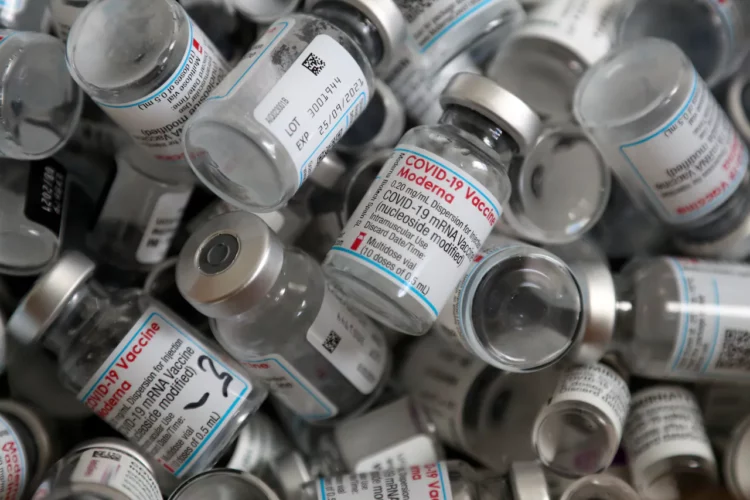About one million COVID-19 vaccines expired in Nigeria in November, an international news agency, Reuters has said.
Reuters, which cited about two sources, said the expired doses were made by AstraZeneca (AZN.L) and delivered from Europe. They were supplied via COVAX, the dose-sharing facility led by the GAVI vaccine alliance and the World Health Organization (WHO) which is increasingly reliant on donations.
The development, which showed one of the biggest single losses of doses that highlights the difficulty African nations have getting shots in arms, came when African governments are pushing for more vaccine deliveries as inoculation rates lag richer regions.
With over 200 million, only 4 percent of adults have been fully vaccinated in Nigeria, according to the (WHO).
Reuters quoted a source saying that some of the doses arrived within four-to-six weeks of expiry and could not be used in time, despite efforts by health authorities.
A count of the expired doses is still underway and an official number is yet to be finalised, the sources said.
A spokesperson for the National Primary Health Care Development Agency (NPHCDA) said the number of vaccines received and used is still being tallied and it would share its findings in the coming days.
Minister of Health, Dr. Osagie Ehanire, said in a statement on Wednesday that Nigeria is already rejecting COVID-19 vaccines with short shelf life or those that cannot be delivered on time.
Ehanire said Nigeria has utilised most of the over 10 million short-shelf-life doses of COVID-19 vaccines so far supplied to it, in good time, and saved N16.4 billion or more than $40million in foreign exchange.
He said the federal government had withdrawn vaccines that expired before then and would be destroyed by the National Agency for Food Drugs Administration and Control (NAFDAC).
He said the donation of surplus COVID-19 vaccines with expiring shelf lives to developing countries has been a matter of international discussion, adding that developing countries like Nigeria accept them “because they close our critical vaccine supply gaps and, being free, save us scarce foreign exchange procurement cost”.
“This dilemma is not typical to Nigeria, but a situation in which many Low- and medium-income countries find themselves,” the minister said.
“The Ministry of Health shares its experience with partners regularly and now politely declines all vaccine donations with short shelf life or those that cannot be delivered in time.”









